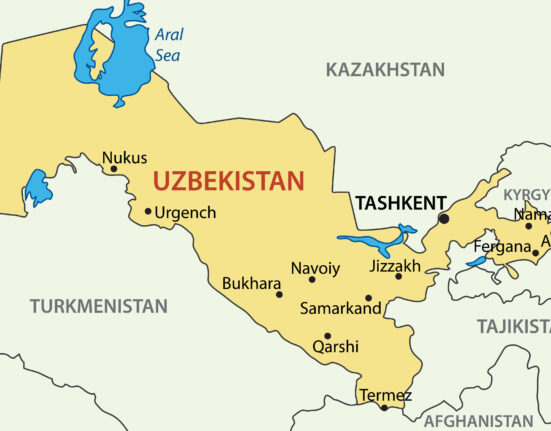As part of the high-level meeting “Uzbekistan, Azerbaijan and Europe – Cooperation for Common Development”, a panel session was held on “Climate Challenges in Central Asia and the European Union: New Opportunities for Transregional Cooperation.”
The session brought together former President of Montenegro Filip Vujanović, Minister of Ecology, Environmental Protection and Climate Change of Uzbekistan Aziz Abdukhakimov, Co-Chair of the Nizami Ganjavi International Center and former World Bank Vice President Ismail Serageldin, former SCO Secretary-General and Minister of Foreign Affairs of Tajikistan Rashid Alimov, and Director of the Center for Progressive Reforms Mirshokhid Aslanov.
In his remarks, Aziz Abdukhakimov stressed that climate change has moved beyond scientific debate and is already directly affecting the health, economies, and social stability of nations. The Minister emphasized that Central Asia is experiencing a rate of temperature rise twice the global average, along with glacier retreat, land degradation and the continuing consequences of the Aral Sea disaster. He outlined Uzbekistan’s key measures initiated by President Shavkat Mirziyoyev: the transformation of the Ministry of Ecology and the establishment of a National Climate Center; the opening of Green University; the annual planting of 200 million trees under the nationwide “Yashil Makon” project; modernization of irrigation systems and the introduction of water-saving technologies; and the development of “green” energy, which is expected to exceed 50 percent of the national energy mix by 2030. The Minister also invited partners to develop joint projects on waste management, glacier monitoring, and water resource management and proposed using Green University in Tashkent as a platform for scientific exchange and research.
During the discussion, participants agreed that climate challenges require collective responsibility and joint solutions. It was noted that transregional partnerships create new opportunities for technology exchange, the introduction of innovations, and the strengthening of sustainable development. The climate future of Central Asia, they emphasized, depends on the shared engagement of all countries in the region together with their European partners.
At the conclusion of the session, participants were invited to upcoming international events: the 20th Conference of the Parties to the Convention on International Trade in Endangered Species of Wild Fauna and Flora (CITES CoP20), to be held in Samarkand in November–December 2025; the 8th Assembly of the Global Environment Facility; and the Eco Expo Central Asia exhibition, both scheduled for 2026. These platforms will serve as an important continuation of the dialogue and create new opportunities for advancing transregional cooperation in ecology and climate action.




